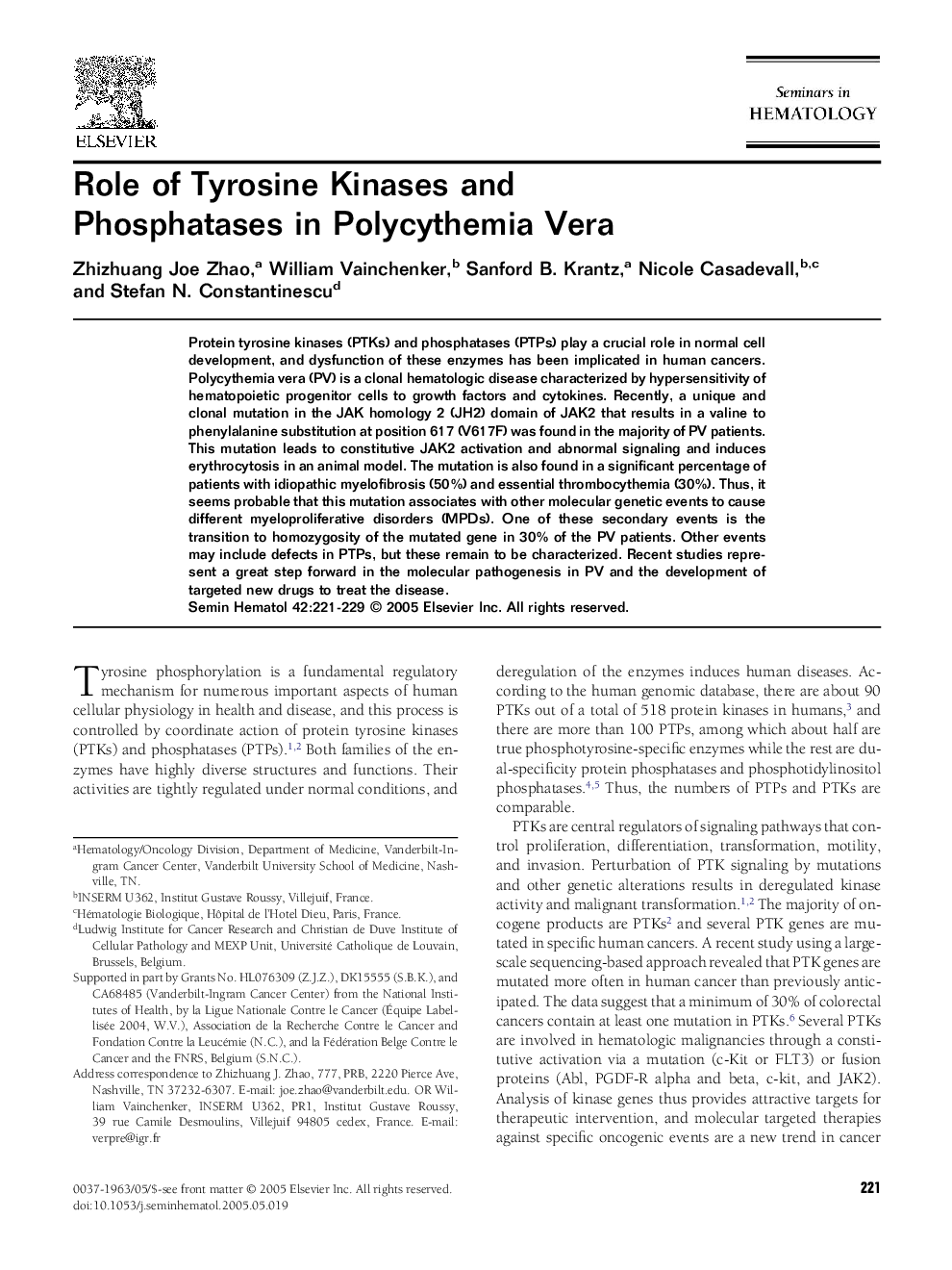| Article ID | Journal | Published Year | Pages | File Type |
|---|---|---|---|---|
| 9258409 | Seminars in Hematology | 2005 | 9 Pages |
Abstract
Protein tyrosine kinases (PTKs) and phosphatases (PTPs) play a crucial role in normal cell development, and dysfunction of these enzymes has been implicated in human cancers. Polycythemia vera (PV) is a clonal hematologic disease characterized by hypersensitivity of hematopoietic progenitor cells to growth factors and cytokines. Recently, a unique and clonal mutation in the JAK homology 2 (JH2) domain of JAK2 that results in a valine to phenylalanine substitution at position 617 (V617F) was found in the majority of PV patients. This mutation leads to constitutive JAK2 activation and abnormal signaling and induces erythrocytosis in an animal model. The mutation is also found in a significant percentage of patients with idiopathic myelofibrosis (50%) and essential thrombocythemia (30%). Thus, it seems probable that this mutation associates with other molecular genetic events to cause different myeloproliferative disorders (MPDs). One of these secondary events is the transition to homozygosity of the mutated gene in 30% of the PV patients. Other events may include defects in PTPs, but these remain to be characterized. Recent studies represent a great step forward in the molecular pathogenesis in PV and the development of targeted new drugs to treat the disease.
Related Topics
Health Sciences
Medicine and Dentistry
Hematology
Authors
Zhizhuang Joe Zhao, William Vainchenker, Sanford B. Krantz, Nicole Casadevall, Stefan N. Constantinescu,
